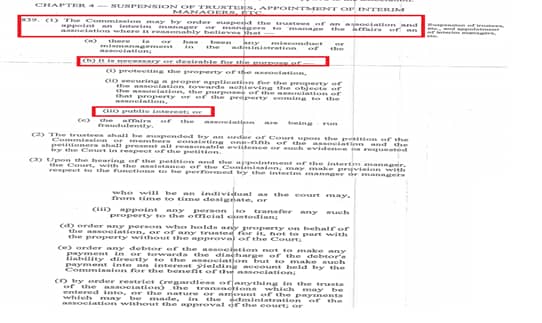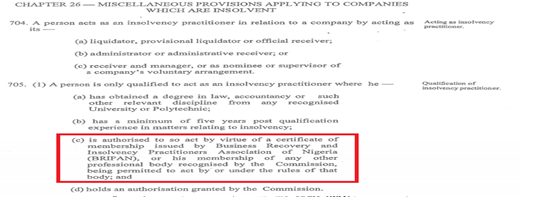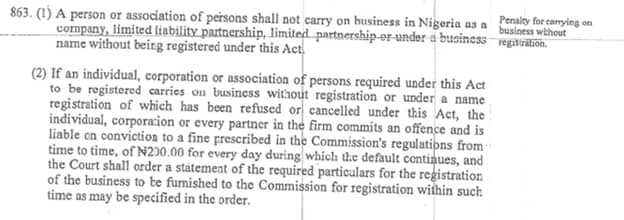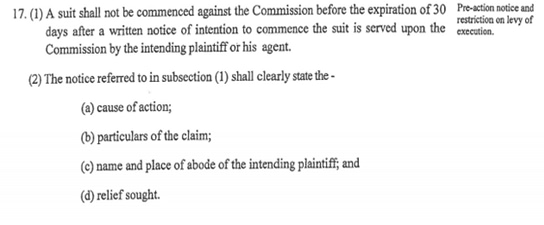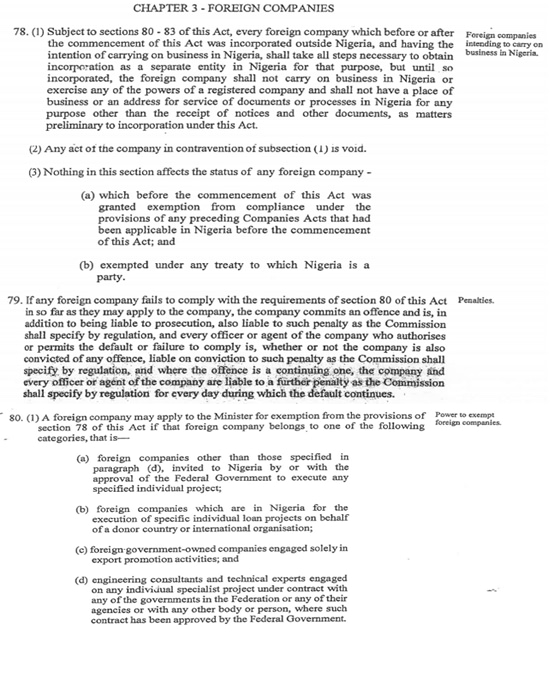THE EMPLOYEE’S COMPENSATION ACT 2010 AT A GLANCE BY GERALD AJOKU ESQ
INTRODUCTION
The Employee Compensation Act 2010, was an important piece of legislation passed in order to provide for employees who were injured, disabled, or died during the course of their employment. The Employee’s Compensation Act is a social security/welfare scheme that provides comprehensive compensation to employees who suffer from occupational diseases or sustain injuries arising from accidents at the workplace or in the course of employment. The basis or justification for ‘compensation’ is the employer’s duty of care. The idea of compensation suggests that someone has suffered a wrong for which he has to be compensated monetarily. This implies that another person has a duty to prevent the occurrence of the wrong suffered.
Payment of compensation by the employer to the employee is rooted in the accepted principle that the employer has a duty of care, a duty to protect the health, welfare and safety of workers at work. Where the worker sustains injuries, gets ill or dies in work-related circumstances, the employer is liable to pay compensation to the worker or to his dependents, in the event of death. The foregoing forms the underlying philosophy behind the enactment of the Employee’s Compensation Act, 2010.
The Objectives of the Act:
These are laudable objectives that should bring reliefs to many employees in the country. These objectives are specifically provided by the Act.
By the provision of Section 1 (a) of the Employee’s Compensation Act, 2010 the objectives of the Act states and provides for an open and fair system of guaranteed and adequate compensation for all employees or their dependants for any death, injury, disease or disability arising out of or in the course of employment;
(b) provide rehabilitation to employees with work-related disabilities as provided in this Act;
(c) establish and maintain a solvent compensation fund managed in the interest of employees and employers;
(d) provide for fair and adequate assessments for employers;
(e) provide an appeal procedure that is simple, fair and accessible,with minimal delays; and
(f) combine efforts and resources of relevant stakeholders for the prevention of workplace disabilities, including the enforcement of occupational safety and health standards.
Further to the objectives laid out above, the act took into consideration the broad application of the Actors who would be required to facilitate the effective dispensation of the fact as well as some tools that could be utilized in the course of applying the letter of the law. Specifically:
1. The Law is applicable to all employers and employees in the public and private sectors throughout the Federal Republic of Nigeria. See section 2 [1] of the Act
2. The Nigeria Social Insurance Trust Fund Management Board is empowered to implement the Act and the Fund established under it. Section 56 of the Act.
3. The Employer must report this information to the NSITF Management Board within 7 days of receiving notification from the employee or his/her dependants. In the case of a death it must be reported immediately. Failure to make a report is an offence under the Employee’s Compensation Act.
4. An application for compensation must be made by the employee or his/her dependants within one year after the date of death, injury or disability arising from an occupational accident or disease, or else the claim will be refused (except if special circumstances for the delay existed). Section 6 [1][2][3] of the Act.
5. Any employee who suffers any disabling injury out of or in the course of employment is entitled to compensation, whether or not it occurred in the workplace. See section 7, 11 of the Act.
6. An employee is entitled to payment of compensation with respect to any accident sustained while on the way between the place of work and –
- The employee’s principal or secondary residence
- The place where the employee usually takes meals, or
- The place where he usually receives remuneration provided that the employer has prior notification of such employee
7. An employee is entitled to compensation for mental stress arising from an acute reaction to a sudden and unexpected traumatic event arising out of or in the course of the employee’s employment. See section 7 of the Act.
Subject to sub-section (2) of this section, an employee shall be entitled to compensation for mental stress not resulting from an injury for which the employee is otherwise entitled to compensation, only if the mental stress is –
(a) an acute reaction to a sudden and unexpected traumatic event arising out of or in the course of the employee’s employment; or
(b) diagnosed by an accredited medical practitioner as a mental or physical condition amounting to mental stress arising out of the nature of work or the occurrence of any event in the course of the employee’s employment.
In WesternNigeria Trading Co. Ltd v. Busari Ajao [1965] NMLR 178, a splinter of steel entered into the eyes of Ajao, causing injury. The employer argued that it was not liable as the employee was negligent in not using the goggles provided, the court, relying on Nolan v. Dental Manufacturing Co. Ltd, held that it was the duty of the employers, not just to supply Personal Protective Equipment such as goggles, but to also ensure that they are used by strict orders and effective supervision. The employer’s defence of not being liable on grounds of employee’s negligence and self inflicted injury in refusing to use personal protective equipment was rejected.
8. Section 14[1] No employer shall, either directly or indirectly, deduct from the remuneration of an employee any part of a sum which the employer is or may become liable to pay into the Fund established under section 56 of this Act, or to require or permit the employee to contribute in any manner towards indemnifying the employer against a liability which the employer has incurred or may incur under this Act.
(2) Any person who contravenes the provisions of sub-section (1) of this section, commits an offence and shall –
(a) be liable on conviction to imprisonment for a term not exceeding I year or to a fine of not less than N100,000.00 or to both such imprisonment and fine; and the course of the employee’s employment.
9. In the case of death of the employee, compensation is paid to the employee’s widow(er) and/or child(ren) on a scale ranging from 30%- 90% monthly of the employee’s remuneration depending on the circumstances of the dependants. See section 56 of the Act.
10. Every employer is to make a minimum monthly contribution of 1% of the total monthly payroll into the Employee Compensation Fund.
Note that without prejudice to the generality of the provisions of this Act, this Act shall not apply to any member of the armed forces of the Federal Republic of Nigeria other than a person employed in a civilian capacity.
PROCEDURES FOR MAKING CLAIMS
The procedures for making claims are contained in Section 4(1) of the Act. It provides that in every case of an injury or disabling occupational disease to an employee in a workplace within the scope of this Act, the employee, or in case of death the dependant, shall within 14 days of the occurrence or receipt of the information of the occurrence, inform the employer by giving information of the disease or injury to a manager, supervisor, first aid attendant, agent in charge of the work where the injury occurred or other appropriate representative of the employer, and the information shall include –
(a) the name of the employee;
(b) the time and place of the occurrence; and
(c) in ordinary language, the nature and cause of the disease or injury if any
It is important to note that failure to provide the information required under sub-section (1) of this section is a bar to a claim for compensation under this Act, unless the Board is satisfied that the – (a) information, although imperfect in some respects, is sufficient to describe the disease or injury suffered;
CONCLUSION:
The Act was enacted to give an employee the wider coast of indemnity and compensation in the course of his employment. The Act gives human face to employer/ Employee contractual relationship.The Act represents a major step in the right direction in respect of labour rights and protection in Nigeria. I am convinced that the Act has enhanced the productivity of Nigeria workers as a result of the motivation it has derived from many of its provisions. It has safeguarded the rights, well being and moral of the workforce not only in the interest of the workers themselves but also that of the employers and the economy. Though must employers of labour are oblivious of the Act.The new Employee’s Compensation Act is a laudable and commendable social security system, it is however, one thing to have a scheme in place with an elaborate legal framework, it is another thing to drive the scheme to fruition. I therefore urge the Federal Government, Non-governmental Organizations (NGOs), and other civil society groups to organise workshop, seminars to tutur both the employer and employee on the provisions of the Act.
REFERENCES
- The Employee’s Compensation Act, 2010
- www.lawpadi.com via http://lawpadi.com/11-things-every-nigerian-know-employee-compensation-act
- Oshin, W. (2010). NIA tackles FG on workers’ compensation scheme in Tribune, 27 May 2010, Lagos Nigeria.
- Alagler Okorie, A critical review of the employee’s compensation ACT, 2010

